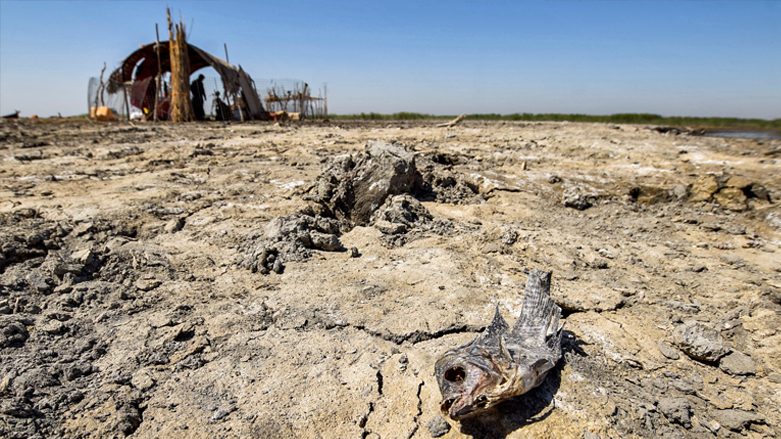Iraq discusses water and energy issues with regional countries ahead of COP27
The lack of water flowing to Iraq has significantly damaged the agricultural sector and inhibited the country’s food security, according to international environmental monitoring groups.

ERBIL (Kurdistan 24) – On the second day of the United Nations’ regional summit on food and agriculture in Baghdad, Iraqi authorities are discussing water, energy, and food with Middle Eastern and North African countries ahead of the UN's Climate Change Conference (COP27).
On Monday, Baghdad inaugurated the 36th session of the Food and Agriculture Organization’s (FAO) Regional Conference for the Near East and North Africa (MENA). In the session, pressing issues regarding food security were discussed, including the threat of droughts.
Along with a number of ministers, Iraqi Prime Minister Mustafa Al-Kadhimi attended the regional conference.
According to a statement from FAO, ministers of the regional countries, including Turkey and Iran, will discuss pressing issues facing the region as a result of global warming, such as water, energy, and food production.
Mohammed Karim al-Khafaji, Iraq’s agriculture minister, confirmed to state media that he would be discussing the topics with the Turkish and Iranian delegations during the conference.
Farmers who depend on Iraq’s two main rivers – the Tigris and Euphrates – for irrigation are facing upstream issues from both Turkey and Iran, as the two countries are building new dams to cope with depleting water levels caused by climate change.
The lack of water flowing to Iraq has significantly damaged the agricultural sector and threatened the country’s food security, according to international environmental monitoring groups.
According to the Norwegian Refugee Council, rising food prices and salination levels are the two of the most palpable consequences of the reduced water flow, further compounded by reduced rainfalls in 2021.
“Dialogue, joint thinking, cooperation, partnership and the development of new strategies to deal with challenges, especially climate change, are among the priorities to achieve common goals.” Prime Minister Kadhimi said in his opening remarks in Baghdad on Monday.